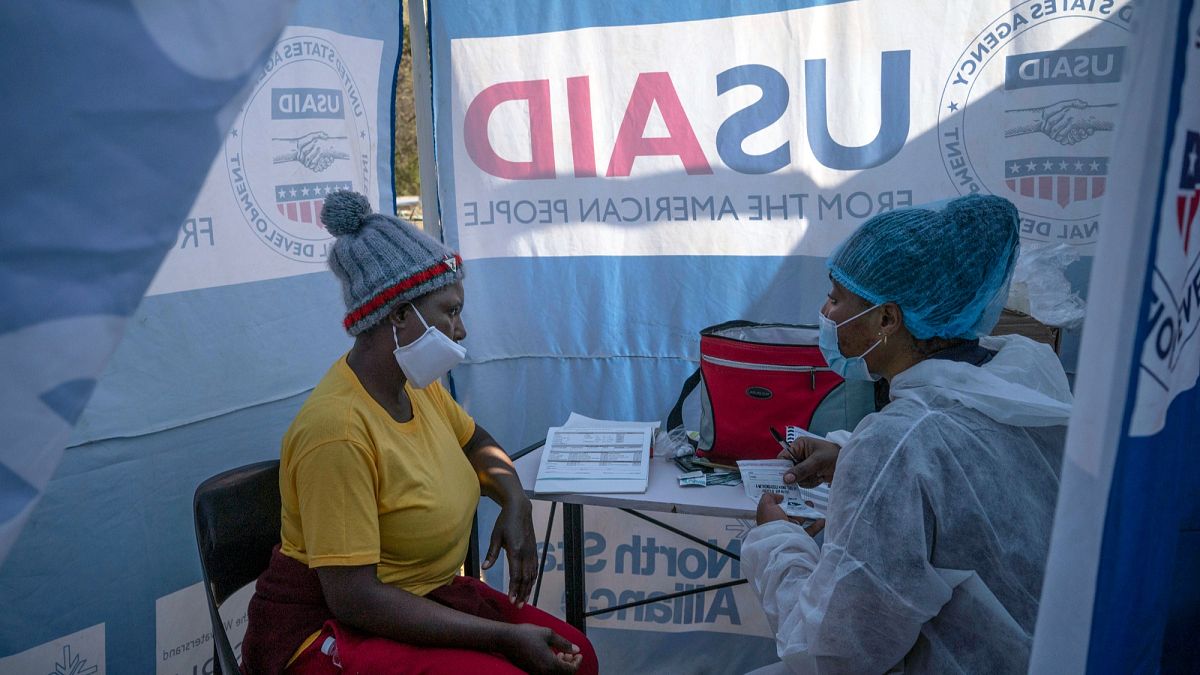Top Stories
Global Health Aid Hits 15-Year Low; US Cuts Lead the Decline

URGENT UPDATE: Global health aid has plunged to its lowest level in 15 years, driven by significant cuts from major donors, particularly the United States. A new analysis from the Institute for Health Metrics and Evaluation (IHME) reveals that international health funding for lower-income countries has dropped dramatically from $80.3 billion (€68.6 billion) in 2021 to just $38.4 billion (€32.8 billion) this year, marking a shocking decline.
This alarming trend comes as global powers, including the United Kingdom, Germany, and France, have all reduced their health spending in the wake of the COVID-19 pandemic. The report underscores the urgency of the situation, with funding expected to fall by another 8 percent to approximately $36 billion (€30.8 billion) by 2030.
The cuts pose a serious threat to years of progress against critical diseases such as HIV/AIDS, malaria, and tuberculosis. Researchers warn that diminished funding will severely limit access to essential health services including pregnancy care and children’s healthcare, jeopardizing food security and clean water access in the most vulnerable regions. Sub-Saharan Africa is projected to be the hardest hit, facing a staggering 25 percent reduction in health aid since last year, with an additional 7 percent decline expected in the coming five years.
Dr. Angela Apeagyei, the lead author of the study, stated,
“The drastic and abrupt reduction to global health aid could compromise the progress in health that has been achieved globally.”
The decline in funding is largely attributed to a 67 percent reduction in foreign assistance planned by the United States this year compared to 2024. This includes proposals to cancel previously approved funds for the U.S. Agency for International Development (USAID) and the President’s Emergency Plan for AIDS Relief (PEPFAR).
While some nations like Australia, Japan, and South Korea have increased their health spending slightly, the overall trend remains concerning. The United Kingdom and Germany have redirected substantial portions of their budgets to defense, while France has cut health funding due to domestic scrutiny over its effectiveness.
With the current economic climate and ongoing geopolitical tensions, experts stress that the pledges made by certain countries to increase health spending will not compensate for the significant cuts from larger donors.
The implications of these funding reductions are profound, affecting millions of lives and potentially setting back public health advancements for years to come. As the situation develops, observers urge governments and organizations to reconsider their priorities to avert a public health crisis on a global scale.
-

 Top Stories3 months ago
Top Stories3 months agoTributes Surge for 9-Year-Old Leon Briody After Cancer Battle
-

 Entertainment4 months ago
Entertainment4 months agoAimee Osbourne Joins Family for Emotional Tribute to Ozzy
-

 Politics4 months ago
Politics4 months agoDanny Healy-Rae Considers Complaint After Altercation with Garda
-

 Top Stories4 months ago
Top Stories4 months agoIreland Enjoys Summer Heat as Hurricane Erin Approaches Atlantic
-

 World5 months ago
World5 months agoHawaii Commemorates 80 Years Since Hiroshima Bombing with Ceremony
-

 Top Stories3 months ago
Top Stories3 months agoNewcastle West Woman Patricia Foley Found Safe After Urgent Search
-

 Top Stories5 months ago
Top Stories5 months agoFianna Fáil TDs Urgently Consider Maire Geoghegan-Quinn for Presidency
-

 World5 months ago
World5 months agoCouple Convicted of Murdering Two-Year-Old Grandson in Wales
-

 World5 months ago
World5 months agoGaza Aid Distribution Tragedy: 20 Killed Amid Ongoing Violence
-

 World5 months ago
World5 months agoAristocrat Constance Marten and Partner Convicted of Infant Murder
-

 Top Stories4 months ago
Top Stories4 months agoClimbing Errigal: A Must-Do Summer Adventure in Donegal
-

 Top Stories4 months ago
Top Stories4 months agoHike Donegal’s Errigal Mountain NOW for Unforgettable Summer Views









